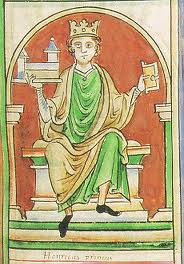The Investiture Controversy
By this time the church was wealthy
(i.e. owned a lot of land) and in most of Europe was a powerful force in politics - because of this
the various kings had been appointing their own friends and followers to these
positions of power, regardless of their ability to be pastors or bishops - in some cases people who
were outright pagans were “made” into Christian bishops because some powerful
political person wanted a friend to have more influence.
Pope Gregory VII, 1074-1085
- had been known as Hildebrand for
many years, a statesman and diplomat, a reformer of the church, the chief advisor to 6
popes, and the one who actually personally chose three of them
- in 1073 the Roman people insisted
that he actually be the pope, rather than just working behind the scenes (and he wasn’t
even a priest at the time)
- in reforming the church Gregory
passed two decrees - the first saying that there was to be no simony, and any person who bought
his office was unworthy of it and would lose their position - also anyone guilty of
fornication (sex before marriage) was to be immediately kicked out of their position - it
shows the state of the church that the bishops of both France and Germany ridiculed this ‘decree’
as being “absurd” and said that “nobody could conform to
them even if he wanted to”
- in a second decree Gregory said that
anyone who received his office from a layman (something that kings and princes
were doing) would no longer be considered a clergyman - in France and England this was
disturbing and there were problems between the royalty and the pope
- in Germany the king depended on
those important bishops as his most important supporters, so it came down to a major fight
between Gregory VII and Henry IV - when Henry ignored the
pope’s decree, Gregory deposed the
king and proclaimed an “interdict” (a prohibition of anything religious for any area
under Henry’s control)
- after “pretending” to repent,
Henry solved the problem by leading his army against Gregory, and Gregory eventually had to flee
- but under a later pope, an agreement was reached with all the kings of Europe that the church
would select the bishops, though the king could refuse to place all the wealth and power in
their hands if they did not want to (which in effect meant that it had to be someone the king
could accept)



























